Bright voices from every corner of the music world left us this year — from virtuoso players to visionary composers, from charismatic bandleaders to golden-eared producers, from influential inventors to critics and commentators who interrogated and elevated the art they covered. Explore their legacies here.

Nat Hentoff
June 10, 1925 – Jan. 7, 2017
Hentoff was a writer for The Village Voice for 50 years. ... He also was a lover and frequent writer on jazz music. From age 11, he was hooked on the genre after hearing the song "Nightmare" by Artie Shaw coming through an open door at a record store. (Read the full obituary)

William Onyeabor
March 26, 1946 – Jan. 16, 2017
Onyeabor was something like Nigeria's answer to Parliament-Funkadelic, churning out space-age disco-funk in the 1970s and '80s with synths and drum machines. (Read the full obituary)
Junie Morrison
Date Unknown – Jan. 21, 2017
When it comes to the funk gods who swung low and sprinkled pixie dust on hip-hop's '90s G-Funk redux, Junie Morrison is of the highest order. His musical contributions to early Ohio Players hits ("Funky Worm") and co-writing and playing on P-Funk's biggest hit ("One Nation Under A Groove") became the sonic blueprint for hits by artists ranging from De La Soul to Dr. Dre.

Maggie Roche
Oct. 26, 1951 – Jan. 21, 2017
As Ann Powers noted earlier this year, Roche and her sisters wrote songs "about pregnancy, work, family tensions, complex love and the feminine mystique [that] gained clarity from the utterly clear, deliberately imperfect harmonies" Maggie delivered along with her sisters Terre and Suzzy.

David Axelrod
April 17, 1931 – Feb. 5, 2017
"He is one of the most intriguing arrangers and composers that I've ever heard doing psychedelic rock and funk music together. To me his music is singular," foundational hip-hop producer Pete Rock says. "I'm a digger and there are records that are similar but something about his music stands out on his own. That music is really deadly, and only he could really touch it." (Read the full remembrance)

Al Jarreau
March 12, 1940 – Feb. 12, 2017
Since he recorded his first album in the 1960s, Jarreau demonstrated a vocal dynamism and flexibility that outpaced many of his peers — as can be seen in his track record at the Grammys. Jarreau won seven of them over the course of his career, becoming the only vocalist to win plaudits in the jazz, pop and R&B categories. (Read the full obituary)

Clyde Stubblefield
April 18, 1943 – Feb. 18, 2017
For most of his career, Stubblefield was better known in sound than in name. He joined James Brown's backing band in 1965. ... Songs like "Cold Sweat," "Say It Loud — I'm Black And I'm Proud" and "Mother Popcorn" are now revered as a gold standard for funk drumming. A generation later, he would have an even bigger impact on hip-hop, as the pattern he'd played on 1970's "Funky Drummer" proved irresistible to producers. (Read the full obituary)

Larry Coryell
April 2, 1943 – Feb. 19, 2017
Coryell's recordings in the late 1960s — first with his band the Free Spirits, then with the Gary Burton Quartet and finally as a bandleader — predicted the rise of jazz-rock fusion and contributed to the sonic evolution of the genre. It's no wonder that snippets of his work were sampled by renowned producers, including J Dilla and DJ Shadow. (Read the full obituary)

Leon Ware
Feb. 16, 1940 – Feb. 23, 2017
Born in Detroit in 1940, Ware became a Motown songwriter in his 20s. Soon, he was writing for the who's who of Motor City — including Marvin Gaye, whose funk-infused 1976 album I Want You was co-produced by Ware, who also co-wrote every tune on the release. (Read the full obituary)

Misha Mengelberg
June 5, 1935 – March 5, 2017
A conservatory-trained composer who played oddball jazz piano and a seemingly disorganized man who helped Dutch improvisers get government support partly by rebranding improvisation as instant composing, ... he was a musical anarchist who taught classical counterpoint and wrote dozens of catchy melodies that rarely sounded like typical jazz tunes. (Read the full obituary)

Dave Valentin
April 29, 1952 – March 8, 2017
Dave Valentin became one of the pre-eminent flutists in Latin jazz. He was known for his creative combination of fusion, pop and R&B. He won a Grammy in 2003 for best Latin jazz album for The Gathering, by the Caribbean Jazz Project. (Read the full obituary)

Joni Sledge
Sept. 13, 1956 – March 10, 2017
[Sister Sledge's] biggest hit, "We Are Family," written by Bernard Edwards and Nile Rodgers of Chic, came eight years after they got together and during a difficult time for the group professionally. "We were saying: 'Well, maybe we should go to college and just become lawyers or something other than music, because it really is tough,'" Sledge later told The Guardian. (Read the full obituary)

Chuck Berry
Oct. 18, 1926 – March 18, 2017
Through the late '50s and '60s Berry defined the contours of rock 'n' roll and, along with peers like Little Richard and James Brown, the full-throttle energy on stage that this still-developing high-tempo, electrified style of blues required. His work influenced nearly every popular musician that came after. (Read the full obituary)

Arthur Blythe
July 5, 1940 – March 27, 2017
Blythe was a commanding figure whose music connected jazz's root system with its freer outgrowths, seemingly without a second thought. It was implicit in his broad-shouldered tone — "round as Benny Carter, ardent as John Coltrane," in the words of Gary Giddins — and through the vibrato that often amplified the sensation of fervency. (Read the full obituary)

Ikutaro Kakehashi
Feb. 7, 1930 - April 1, 2017
The 808's candy-colored keys, clunky preset sounds, and small size made it seem more like a Fisher-Price toy than a serious instrument. But that was part of its enduring genius. There was nothing intimidating about the little Roland machines — unlike most synthesizers and drum machines of the time, which tended to be large, expensive, and hard to program. ... Under Kakehashi's lead, Roland's engineers developed synths, effects units, drum machines, and many other devices at a furious clip. (Read the full obituary)
J. Geils
Feb. 20, 1946 – April 11, 2017
Geils is best known for The J. Geils Band's No. 1 hit, "Centerfold," which spent six weeks atop the Billboard Hot 100 singles chart in 1982 and 25 weeks on the chart cumulatively. ... Even before finding mainstream success in the 1980s, the band was one of the more popular rock acts of the 1970s: It released 10 albums during that decade, touching the Top 10 with 1973's Bloodshot. (Read the full obituary)

Sylvia Moy
Sept. 15, 1938 – April 15, 2017
Sylvia Moy was one of the first female producers at Detroit's legendary Motown Records. ... As a songwriter, she wrote for artists like Marvin Gaye and the Isley Brothers. But her most notable creative partnership was with Stevie Wonder. She co-wrote a number of his hits, including "Uptight (Everything's Alright)" and "My Cherie Amour." (Read the full remembrance)

Chris Cornell
July 20, 1964 – May 18, 2017
Cornell played a seminal role in the origins of grunge music, founding Soundgarden in 1984 with Kim Thayil and Hiro Yamamoto. Together with other Seattle acts Nirvana, Pearl Jam and Alice in Chains, the band — and Cornell's voice — would go on to define a sound that cherry-picked elements of punk and metal and distorted them into a distinctive brew all their own. (Read the full obituary)

Gregg Allman
Dec. 8, 1947 – May 27, 2017
The Allmans embarked on lengthy musical explorations that reflected the discipline and dynamics of classical music, the passion of soul and the improvisational spirit of jazz. Gregg Allman's contributions were his singing, his chops on the Hammond organ and his songwriting. As a composer, he wrote songs that not only were FM radio hits back in the '70s but eventually became popular with an entirely new generation of Allman Brothers fans. (Read the full remembrance)
David Lewiston
May 11, 1929 – May 29, 2017
The force behind more than two dozen recordings for the Nonesuch Explorer series, ... Lewiston's ear took him all over the globe, capturing a scope of music that may seem unimaginably broad today. (Read the full obituary)

Paul Zukofsky
Oct. 22, 1943 – June 6, 2017
A prize-winning youth violinist who survived the glare of life as a prodigy, Zukofsky grew up to become a supremely skilled, if not always approachable, adult musician, and a great supporter of contemporary classical music as a soloist and, later, conductor.

Rosalie Sorrels
June 24, 1933 – June 11, 2017
Rosalie always considered herself a singer more than a songwriter. Her heroes were people who had what she called "the heartfelt tone" – the Brazilian soprano Bidu Sayão, Billie Holiday, Edith Piaf, Patsy Cline, Sam Cooke, David Hidalgo of Los Lobos. It had nothing to do with genre and everything to do with feeling. (Read the full obituary)

Prodigy
Nov. 2, 1974 – June 20, 2017
Prodigy co-founded the Queens-based Mobb Deep in the early '90s, alongside partner Havoc. The two became synonymous with a brand of East Coast gangsta rap that represented the ill street blues, grit and grime of pre-gentrified New York City. ... The music was dark, with eerie undertones that reflected the environmental hazards and criminal exploits of day-to-day living in the hood. (Read the full obituary)

Geri Allen
June 12, 1957 – June 27, 2017
Allen proved more than a virtuoso able to marshal the greatest rhythm sections; she was a musical partner with prodigious ears, motivated by the percussive energy of the avant-garde, the elusive unified spark of straight-ahead swing and the expressive truth of piano balladry. (Read the full obituary)

Pierre Henry
Dec 9, 1927 – July 5, 2017
[Henry] helped usher in a musical revolution with a style called musique concrète — "concrete music" — collages of prerecorded and manipulated sounds from both electronic and acoustic sources. (Read the full obituary)

Christopher Wong Won
May 29, 1964 – July 13, 2017
Christopher Wong Won — you might know him as Fresh Kid Ice — was a pioneer rapper of Cantonese and Trinidadian descent [who] co-founded the seminal rap group 2 Live Crew. The group's third album, As Nasty as They Wanna Be, was its most memorable: Authorities in Broward County, Fla., declared the album obscene and promised to arrest record store owners who sold it. (Read the remembrance)

Chester Bennington
March 20, 1976 – July 20, 2017
At the height of its popularity, Linkin Park toured relentlessly — the band reportedly tallied 342 live shows just in the year 2001. ... Its debut album in 2000, Hybrid Theory, became the best-selling rock album of that decade, and the group went on to sell more than 50 million units. (Read the obituary)

Dr G Yunupingu
Jan. 22, 1971 – July 25, 2017
The best-selling Aboriginal musician in Australian history, ... Yunupingu had a sweet tenor voice and a gentle guitar style that took him far beyond his homeland. (Read the full obituary)

Glen Campbell
April 22, 1936 – August 8, 2017
Campbell once said he didn't consider himself a "country singer," but rather a "country boy who sings." And historian John Rumble from the Country Music Hall of Fame says Campbell had something few do: "When he was on stage and started to sing, you knew there was a star on stage," Rumble says. "I don't know how to explain it. It's an aura. It's a feeling. You knew this was somebody special." (Read the full obituary)

Barbara Cook
Oct. 25, 1927 – August 8, 2017
The Atlanta-born soprano started her Broadway career in 1951, but it was her 1956 role in Leonard Bernstein's short-lived Candide, with its popular cast recording, that ensured her immortality. ... In 1975, she reinvented herself as a highly regarded concert and cabaret artist. (Read the full obituary)
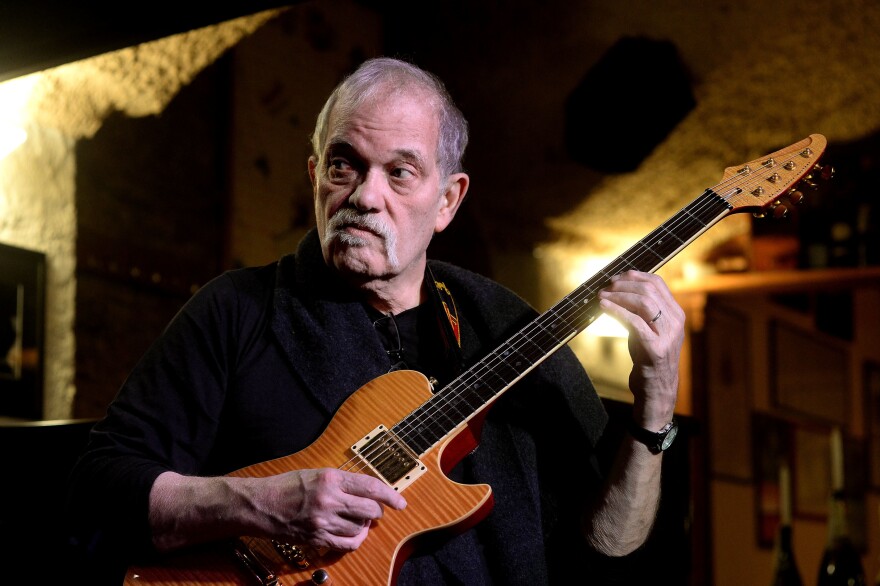
John Abercrombie
Dec. 16, 1944 – August 22, 2017
Abercrombie was a confident but unassuming artist, whose abundant gifts did not include the knack for self-promotion. He emerged in the immediate wake of electric-guitar trailblazers like Sonny Sharrock and John McLaughlin but, at least temperamentally, he belonged more to the generation a decade or so his junior: cheerful omnivores like Pat Metheny, John Scofield and Bill Frisell. (Read the full obituary)

Walter Becker
Feb. 20, 1950 – Sept. 3, 2017
Walter Carl Becker founded Steely Dan with singer and songwriter Donald Fagen in 1972, and with the help of many talented session musicians, the band released a string of popular and critically acclaimed albums that combined rock, jazz and studio wizardry in unprecedented fashion. (Read the full obituary)

Holger Czukay
March 24, 1938 – Sept. 5, 2017
In its early-'70s prime, Can was dedicated to collective improvisation — as Czukay put it last year to Mojo, "We were not thinking. When you make music together, you have to reach a common accident." At its best, the group sounded like a single organism. But one man, Czukay, collectively tuned them. (Read the full obituary)

Don Williams
May 27, 1939 – Sept. 8, 2017
Williams topped country charts with regularity through the '70s, in songs characterized by an easygoing, Sunday-afternoon air and delivered with a smooth voice that walked the seam of a front-porch baritone and stage-ready tenor. (Read the full obituary)
Jessi Zazu
July 28, 1989 – Sept. 12, 2017
As a songwriter, she grew up in front of her loving audience's eyes: Her early Those Darlins songs are sass explosions pierced through with shards of insight, while later ones reveal a woman digging into herself, facing her own vulnerabilities aided by an increasingly sophisticated feminist consciousness. (Read the full obituary)

Grant Hart
March 18, 1961 – Sept. 13, 2017
[Hart was] a drummer and songwriter best known as a member of Minneapolis' widely influential punk trio, Hüsker Dü. ... Ten years of collaboration [saw] Hüsker Dü transition from speed-obsessed hardcore punks to the architects of the melodic, high-concept double album Zen Arcade. The trio's final album, Warehouse: Songs & Stories, was a relatively bright piece that would help define the sound of alternative and college rock for nearly a decade after. (Read the full obituary)

Charles Bradley
Nov. 5, 1948 – Sept. 23, 2017
Known for a powerful and pained rasp that he used to channel both his demons and deep gratitude, Bradley released his debut album, No Time For Dreaming, at 62. He would become a totemic artist for the Brooklyn label Daptone, best known for its revivalist '60s soul. (Read the full obituary)

Tom Petty
Oct. 20, 1950 – Oct. 2, 2017
"Music," Petty told host Melissa Block on All Things Considered in 2014, "is a real magic: It affects human beings, it can heal, it can do wonderful things. I've had two people contact me in my life about coming out of comas to their family playing a song to them of mine, that they had liked before they were injured. They credited the song having something to do with that. I find that fascinating. A lot of people have told me, 'This music got me through a really hard time,' and I can relate to that." (Read the full obituary)

Grady Tate
Jan. 14, 1932 – Oct. 8, 2017
The precision and ebullient feeling in Tate's drumming made him a first call, in the studio and on tour, for many of the finest singers of the '60s and '70s, including Ella Fitzgerald, Tony Bennett, Lena Horne and Peggy Lee. ... [And] a generation of kids grew up hearing Tate's voice on the soundtrack for Schoolhouse Rock! (Read the full obituary)

Gord Downie
Feb. 6, 1964 – Oct. 17, 2017
The Tragically Hip has been called Canada's house band, the Canadian Bruce Springsteen, the most Canadian band ever. Over three decades, frontman Gord Downie and his band rose from high school buddies playing bars in Kingston, Ontario, to a national treasure, singing about Canada's landscape and history. (Read the full obituary)
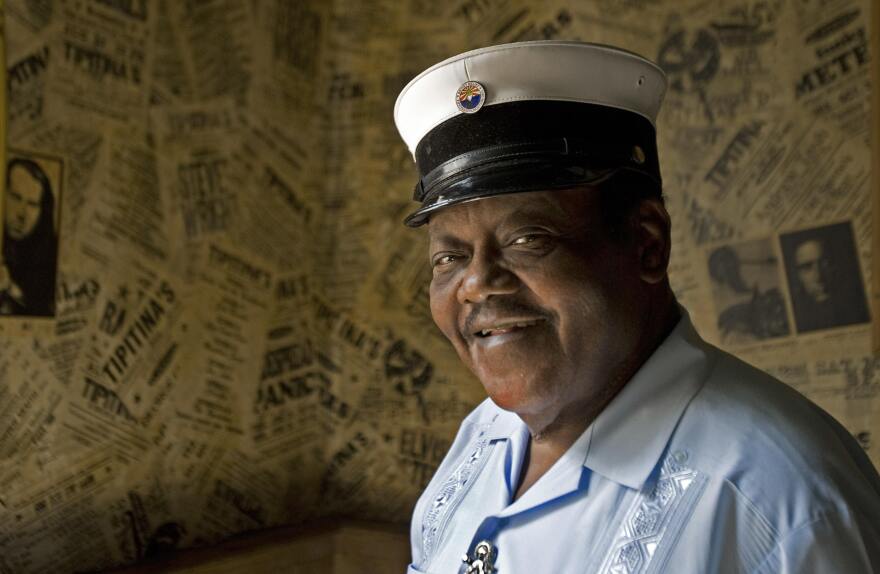
Fats Domino
Feb. 5, 1928 – Oct. 24, 2017
Between 1950 and 1963, Domino hit the R&B charts a reported 59 times, and the pop charts a rollicking 63 times. He outsold Little Richard, Chuck Berry and Buddy Holly — combined. Only Elvis Presley moved more records during that stretch — and Presley cited Domino as the early master. (Read the full obituary)

Muhal Richard Abrams
Sept. 19, 1930 – Oct. 29, 2017
Abrams was a brilliant, mostly self-taught pianist who combined a strong foundation in the blues with keen attunement to the shadow art of vibration and overtone. While he came up in a hard-swinging jazz context, and created some of his early work in that style, he was serious about a non-idiomatic approach to improvisation. (Read the full obituary)
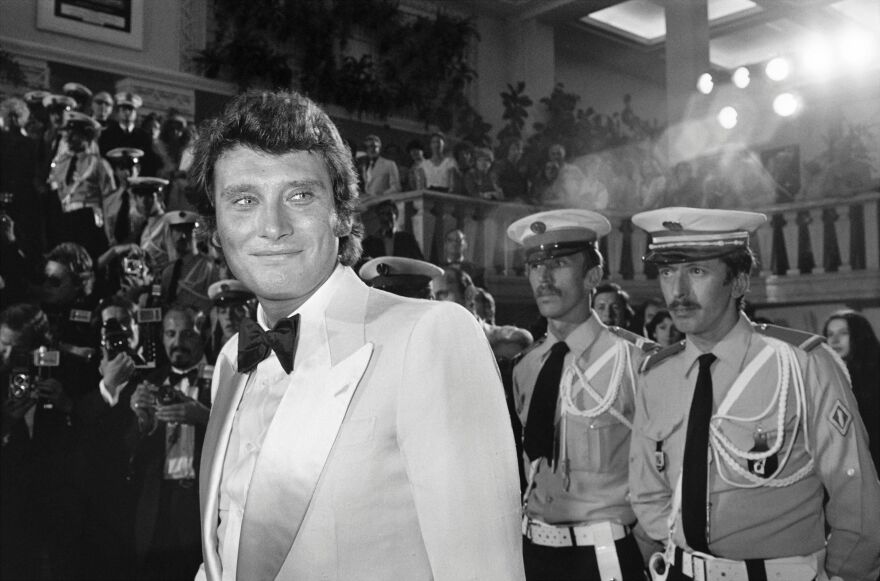
Johnny Hallyday
June 15, 1943 – Dec. 5, 2017
Although little known to audiences outside the Francophone zone, Hallyday sold 100 million records, dominating the French rock scene for five decades. He also appeared in numerous films. The French referred to him simply as "Our Johnny." (Read the full obituary)

Lil Peep
Nov. 1, 1996 – Nov. 15, 2017
Born Gustav Åhr, Lil Peep ... was part of a scene that broke a new sub-genre of emo-rap, but his was the most prominent voice, and he was the artist primed to take it into the mainstream. His signature lo-fi, rock-sampling beats and gothic, vulnerable delivery caught the attention of fans and record labels when he moved to Los Angeles. (Read the full obituary)

Malcolm Young
Jan. 6, 1953 – Nov. 18, 2017
Over the decades, AC/DC's swaggering, hard-driving songs — hits like "Highway to Hell," "Back In Black" and "You Shook Me All Night Long" — were power-chord perfection to hard rock and metal fans across the globe, and made the band a multi-decade institution. (Read the full obituary)
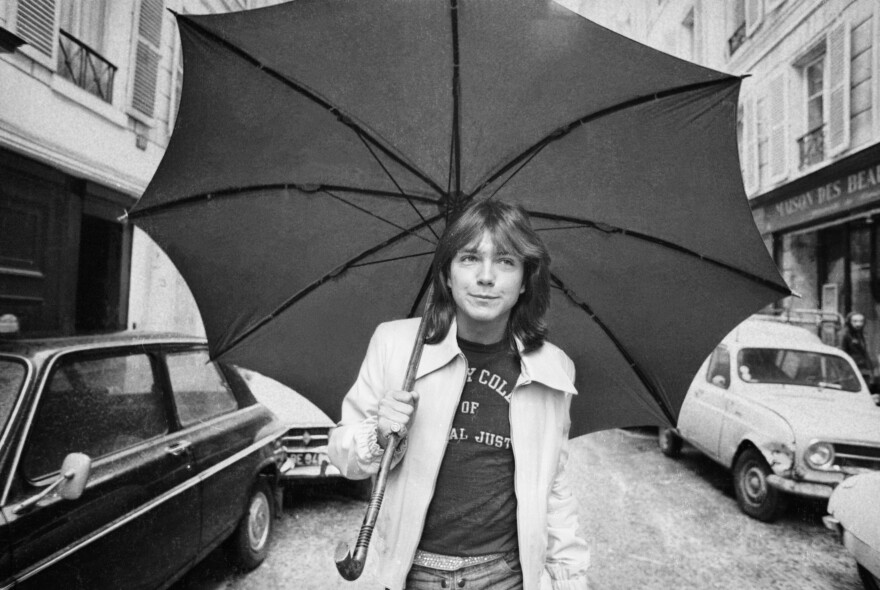
David Cassidy
April 12, 1950 – Nov. 21, 2017
Within a year of his screen test, he had been signed to his life-changing role as the oldest child in a family of five aspiring pop singers and their musically gifted mother — played by Shirley Jones, Cassidy's real-life stepmother. By the time he was 20, Cassidy was one of the world's most recognizable television and music stars, even though he had never sung publicly until he became Keith Partridge. (Read the full obituary)

George Avakian
March 15, 1919 – Nov. 22, 2017
Over the course of a long career that began in his early 20s, Avakian worked closely with many jazz legends, including Duke Ellington and Louis Armstrong. He also shaped core perceptions around jazz's historical recordings, creating both the first jazz album and the first jazz reissue program. And he helped put the music in relatable context, savoring his reputation as "the father of jazz album annotation." (Read the full obituary)

Jon Hendricks
Sept. 16, 1921 – Nov. 22, 2017
First and foremost, he was a storyteller: funny, dexterous with language and erudite. Jon Hendricks could reference practically anything in his lyrics — from the controversy over Shakespeare's identity to the Spanish Civil War — and make them swing. (Read the full obituary)

Dmitri Hvorostovsky
Oct. 16, 1962 – Nov. 22, 2017
After Hvorostovsky won the Cardiff Singer of the World competition in 1989, his success was sealed. ... He told NPR in 2004 that when words fail, the communicative power of singing takes over. "When the words are becoming speechless, hopeless and helpless," Hvorostovsky said, "at that moment, singing starts." (Read the full obituary)

Sunny Murray
Sept. 21, 1936 – Dec. 8, 2017
As one of the leading figures of the free-jazz movement in the 1960s, Murray forged a revolutionary style. ... Best known for his groundbreaking work with pianist Cecil Taylor and saxophonist Albert Ayler, Murray also backed a wide range of other intrepid improvisers, and performed and recorded as a leader through most of his five-decade career. (Read the full obituary)
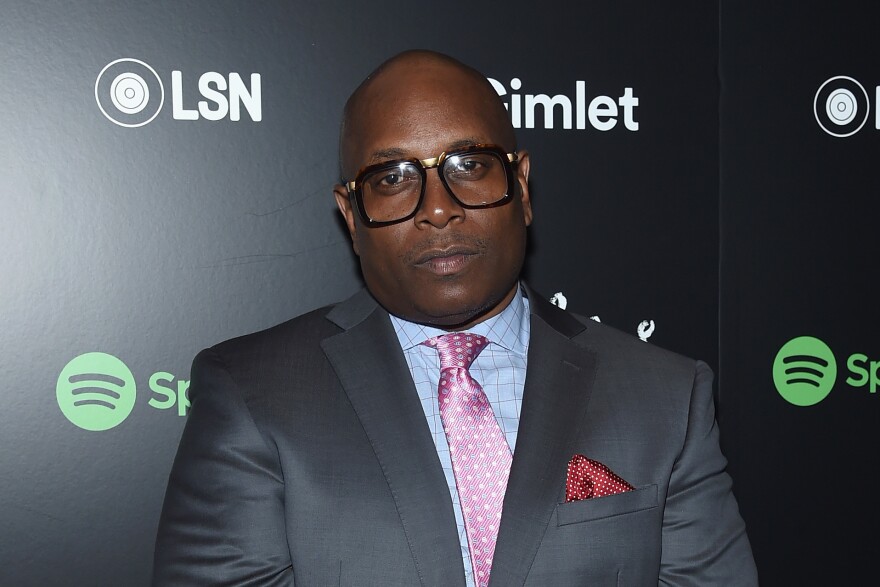
Reggie Ossé
July 8, 1964 – Dec. 20, 2017
The Combat Jack Show ... scored some of the rarest and rawest hip-hop interviews of an era when rap's center of gravity started its move toward the Internet. Ossé was able to get gems out of otherwise reserved or reclusive rappers by employing a type of interview style many emulate today. (Read the full obituary)

Roswell Rudd
Nov. 17, 1935 – Dec. 21, 2017
Rudd personified a warm and agreeable bluster as an improviser, with a sound that was unmistakable in any setting. And those settings varied wildly, because Rudd was the sort of musician who couldn't help but draw connections: between throwback jazz traditions and a forward-hurtling revolution; between folk customs from far-flung hemispheres; between musicians of divergent backgrounds, objectives and approaches. (Read the full obituary)
Copyright 2023 NPR. To see more, visit https://www.npr.org.

